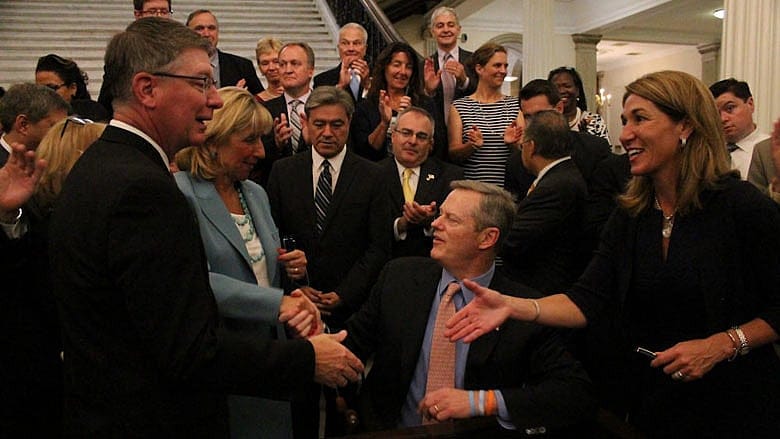Baker signs law aimed at fostering economic development

STATE HOUSE — With the stroke of a pen Wednesday morning, Gov. Charlie Baker authorized $500 million in new state infrastructure spending, $45 million for contaminated site cleanups and $4.5 million for a cybersecurity and data center.
The roughly $1 billion economic development law completes the work on major bills highlighted by the governor as priorities for this legislative session. Five of six items identified by Baker as must-finish policy pieces became law in recent weeks, although Senate President Stan Rosenberg said last week that in the rush to write those bills lawmakers lost an opportunity make "good bills" even better.

